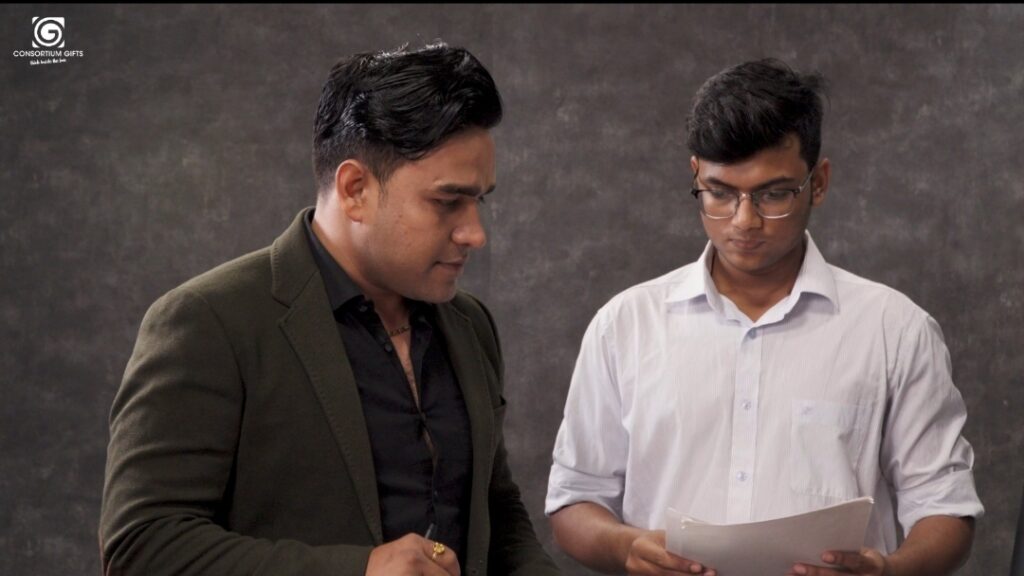By Anubhav Pandey, Chief Strategy Officer, Consortium Gifts
The Diwali 2025 season in India was more than just a shopping frenzy-it became a storytelling festival for brands. Festive markets were busier than ever, with retail trade at an all-time high of ₹6.05 lakh crore in sales. This economic boom underlined the stakes for customer loyalty. In response, brands shifted their strategy, going beyond discounts and points to weave emotional, culturally resonant stories. The result is a new paradigm in which customer experience and retention will rely on cultural storytelling and heartfelt connection, rather than on mere transactions.
From Transactional to Emotional Loyalty
In India, customer “loyalty” had been fostered for years through sales, reward points, and cashbacks, basically transactional incentives. But this 2025 festive season has underlined a decisive pivot: emotional loyalty as the true battleground. According to the Zendesk CX Trends 2025, 70% of customers in India will switch to a competitor after having just one poor experience.
Using emotion is beneficial, according to several studies. According to a Harvard Business Review study, customers who were emotionally connected were 52% more valuable over the course of their lifetime than those who were just satisfied. These consumers promote the brand, buy more frequently, and are less price sensitive. Actually, 70% of emotionally engaged consumers spend at least 2× on the brands they like. Businesses that develop these relationships see measurable benefits: companies with strong emotional ties to their customers grow their sales by 85% more than their rivals. Customer service and experience are now crucial factors, which is not surprising. It’s interesting to note that 85% of Indian customers now view customer service as the “battleground” for their allegiance. Price will still play a role in the 2025 economy, but the companies that use CX innovation to make every interaction feel valued, frictionless, and human will win.
The Rise of Cultural Narratives in CX
What’s pushing this in India? A key driver of this movement is the power of cultural storytelling. Marketers in a diverse market steeped in tradition recognize that campaigns reflecting local culture and values have strong emotional pull. A recent industry whitepaper says that the brands that resonate with the consumer’s cultural values will have a more emotional connect with them, thus guaranteeing longevity of the relationship. Marketers now use themes of family, nostalgia, and regional pride to make customers feel understood, rather than generic messages, particularly during festivals.
This was well reflected in the many Diwali 2025 campaigns. Very few brands were selling products; more importantly, many of them had managed to weave stories around what the festival means to people. The campaigns that drew on sentiments such as family bonding, gratitude, and togetherness worked better, especially those that were local in language and nuance. Data says so: vernacular language campaigns work better than generic pan-India messages, reflecting the importance of storytelling in local languages. Customers recognize and respect a brand’s story when they see that it tells a story of their festivals, languages, and values too. Brands that joined in the celebration-not just the sale-gain goodwill.
Diwali 2025: Brands winning with Storytelling
This past festive season brought a number of case studies that best capture this pivot toward cultural storytelling. Brands across industries, from jewelry and fashion to automobile, embraced emotional and narrative-led campaigns to bond with customers and improve retention:
Tanishq – “India Wali Diwali”: The jewelry brand Tanishq’s Diwali 2025 campaign has raised the bar for cultural storytelling. Titled “India Wali Diwali,” this campaign film follows the story of a little girl celebrating her first Diwali outside India. Viewers see, through her eyes, the magic of tradition and family: the heirloom jewelry that “completes” the occasion, the soft light of diyas, and the quintessential family traditions. The story tugged at the heartstrings of Indians both living abroad and on Indian soil. Tanishq positioned its products as carriers of culture and memory, and its ads did more than simply show ornaments; they embraced the feeling of homecoming and belonging. This storytelling approach will ensure that customers love the brand for a long time, much after the festival season is well over.
Myntra
Myntra: Building Loyalty & Community – Myntra, an online fashion retailer, tried to build community and loyalty a little differently. For example, Myntra created a sense of belonging for shoppers and had them share pictures of themselves in ethnic outfits through its festive style challenges. Combined with its Myntra Insider Loyalty Program, this strategy of re-engaging customers via personalized content and rewards paid off in retention. During the festive sale of 2025, nearly 60% of Myntra users placed a repeat order within 14 days-a pretty high feat in an age of ephemeral attention.
All this helped in making Myntra’s promise of easy returns, regional language-based style advice, and influencer-led lookbooks for Diwali resonate and transform one-time buyers into returning buyers. The brand’s localized app experience made various customer segments feel at home. By the end of the season, Myntra managed to add millions of new shoppers but also saw strong growth in customer lifetime value, courtesy of these emotionally intelligent CX initiatives.
MG Motor India
MG Motor India adopted the cultural-storytelling pivot for Diwali 2025 with its “Directory of Kindness” initiative: instead of just shining the spotlight on a new model or a discount offer, the campaign invited people to nominate their local artisans, mithai-walas and shopkeepers-the unsung heroes of festive celebrations. Anchored by a short film in which a young professional, prompted by his grandfather, steps away from his digital routine and rediscovers the community around him, MG Motor repositioned itself not just as an automaker but as a brand that honours human connection, culture and community, making its brand story align with the larger festive sentiment of belonging, rituals and care. The result was a subtle but significant shift from “buy this vehicle” to “join something you believe in”, fitting well with the broader trend of culture-led CX over deal-driven.

Conclusion: Strategic Imperative for CX Leaders
The 2025 Indian holiday season has been a master class in the intersection of customer experience, culture, and loyalty. One thing became abundantly evident as the nation’s retail sector reached previously unheard-of heights: building the strongest relationships with consumers is more crucial to market success than making the most eye-catching sales. If brands want to develop those relationships, they must invest in genuine storytelling and emotional CX design in addition to tech infrastructure and loyalty point programs. The lesson for marketers and CX leaders is profound: A strategic differentiator, emotional and cultural relevance is what turns one-time customers into brand evangelists who stick with the company and recommend it to others.
As we move beyond 2025, expect to see more companies adopting this ethos. The playbook might include AI-driven personalization, but with a human touch; firms that marry AI with empathy and cultural nuance are already seeing 45% higher retention rates in their customer base, says Zendesk’s report. It will involve cross-functional play: marketing, customer support, product design, and data teams working in concert to make sure every customer touchpoint, from an ad to a support call, reinforces the brand’s understanding of the customer consistently. Brands that respect the emotional and cultural dimensions of their customers’ lives will continue to thrive during Diwali and beyond. Retention, lifetime value, advocacy-the metrics that truly matter-will follow organically when a brand becomes a trusted part of the customer’s story. In that sense, the age-old wisdom holds good: touch a heart, and you win a customer for life.
Author’s Profile
Anubhav Pandey serves as CSO (Chief Strategy Officer) at Consortium Gifts. He has been associated with Consortium Gifts for about 13 years. His expertise includes building e-commerce solutions and online branded merchandise portals for clients ranging from mid-sized firms to Fortune 500 companies.

